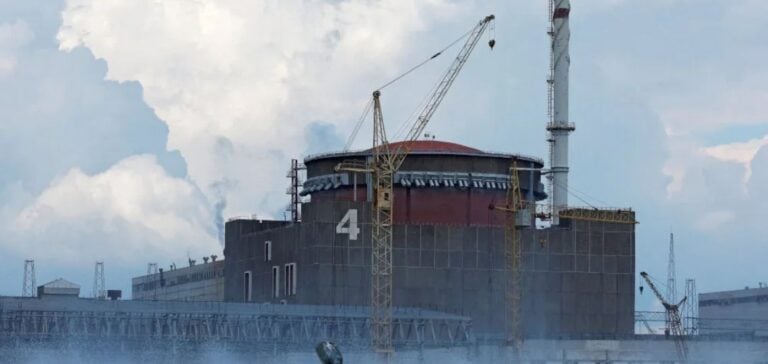Russian strikes recently targeted 80% of Ukraine’s thermal power stations and half of its hydroelectric plants, reports Ukrainian Energy Minister Guerman Galushchenko. He denounced this as “the biggest attack” on the country’s energy sector. Numerous electrical transmission stations were also attacked. These actions caused long power cuts in Kharkiv, Ukraine’s second largest city. As a result, the country plans to “decentralize” its energy network to counter attacks.
Impact on the energy sector
The Ministry’s press office informed AFP that thermal power plants had been “damaged” by the strikes, although the exact extent of the damage was not specified. The Minister added that the scale and impact of this new wave of attacks are far greater than those seen during the previous winter’s campaign, when millions of Ukrainians were left without electricity and heating. Guerman Galushchenko noted that the Russian army had modified the drones and missiles used for these bombardments, making them “even more dangerous”. He stressed that these attacks continue on an almost daily basis. Before the Russian invasion in February 2022, power generation in Ukraine was relatively balanced between coal- and gas-fired thermal power plants, and nuclear power plants, with a smaller share of hydroelectricity.
Situation at the Zaporijjia nuclear power plant
The Zaporijjia nuclear power plant in southern Ukraine, Europe’s largest, has been occupied by Russia since the start of the war and no longer produces electricity. Drone attacks have been reported recently by both Moscow and Kiev, with each side accusing the other of targeting this strategic facility. According to the administration set up by Moscow, several drones targeted the plant on Sunday and Monday. A kamikaze drone was reportedly shot down over the plant, landing on the roof of reactor number 6, but posing no danger to the facility.
Cross-accusations
Ukraine accuses Russia of disseminating false information and asserts that it is Russian forces that are attacking the power station they occupy with drones. Andriï Kovalenko, head of the Ukrainian Center for Combating Disinformation, criticized a “campaign of provocation and falsification” by Russia.
International reactions
The International Atomic Energy Agency (IAEA) denounced the attacks as a “major escalation” and a “serious incident”. Rafael Grossi, its director, reported that direct impacts on the plant’s containment structures had been confirmed. Rosatom and the IAEA have reported injuries following these incidents.
Rosatom urged the IAEA and European Union countries to “categorically condemn the escalation”. Kovalenko accused Russia of “manipulating the IAEA’s concerns”, while strikes and bombings have continued to target the Zaporijjia plant for over two years.





















